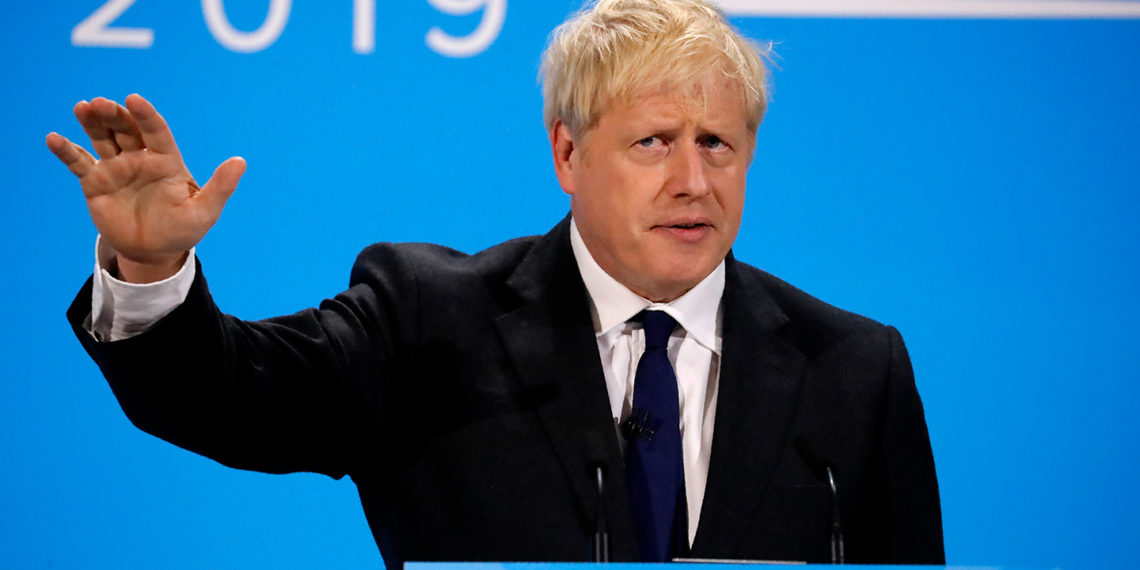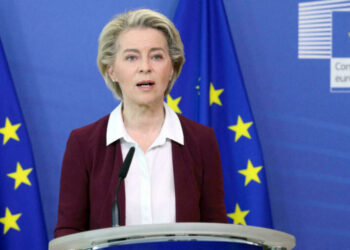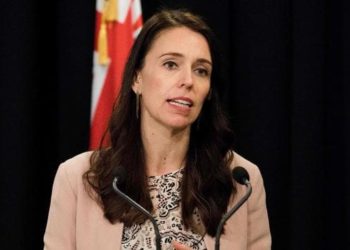In securing a stunning general election victory with an impressively large parliamentary majority of 80, British Prime Minister Boris Johnson has achieved the governing Conservative Party’s biggest electoral victory since Margaret Thatcher’s third and final election success in 1987.
By recent historical standards, this is therefore something of a significant development, and such an unprecedented result has re-written some of the so-called ‘iron laws’ of British politics.
Changing British Politics
On a fundamental level, it has long been broadly accepted by political and academic observers that after a sustained period in office, the ruling party tends to lose popularity and support, not gain it. Yet by securing a net gain of 47 MPs, Johnson has gained the largest number of parliamentary seats for any incumbent party in power since 1983.
— Conservatives (@Conservatives) December 12, 2019
This is within the context of the Conservatives being in government either alone or in coalition at Westminster since 2010. By contrast, the main opposition Labour Party has now lost its fourth successive general election and is poised to enter a renewed period of internal crisis as it seeks a new and more electable leader.
The reasons for such contrasting fortunes can be linked back to the interminable Brexit debate which has plagued British politics since 2016. Although they were the initial architects of this crisis who instigated the referendum on E.U. membership, the Conservatives have since cleverly maneuvered themselves into a position where they have emerged as the saviors promising to resolve it.
Conservative Party’s Stance
Although being initially split both during the build-up and aftermath of the Brexit referendum, in the years since 2016, the Conservative Party has refined its position and adopted an increasingly more Eurosceptic stance within this policy sphere.
This has entailed explicitly pledging to honor the referendum outcome by taking Britain out of the European Union. By contrast, Labour splits over the issue have not been resolved, with most of its MPs of a more pro-European inclination and being more reluctant to wholly accept the people’s Brexit verdict.
Earlier this year, the Conservatives ruthlessly ousted sitting Prime Minister Theresa May and replaced her with Johnson. This came in the wake of May’s inability to decisively resolve the Brexit negotiations, resulting in delay and deadlock in relation to securing the U.K.’s practical departure.
May had suffered a major electoral setback at the previous general election of 2017, when she had gambled and called it earlier than required to supposedly secure an increased parliamentary majority, only to then lose her majority completely.
Johnson’s Strategy and ‘Labour Leave’ Voters
Johnson appeared determined not to make the same mistake, and from the moment he took office earlier this summer, he and his team of advisors have been strategically planning towards such an election campaign and this particular outcome.
Central to such a strategy shaped by his chief advisor Dominic Cummings has been the desire to cultivate an appeal to the so-called ‘Labour Leave’ voters. These are core groups of traditional Labour supporters who, in large numbers, voted to leave the E.U. in June 2016.
Some commentators have called these voters part of the U.K.’s “left behind” community, namely that they are specifically older, white, middle-aged, and mainly working-class people who’ve been overtaken by technological employment developments and globalization, while also feeling threatened by changing immigration patterns.
‘Get Brexit Done’
Fueled by polling evidence that such voters were increasingly disenchanted by Labour’s metropolitan image and ongoing prevarication over Brexit, the Conservatives targeted this demographic with repeated and high-profile promises to “get Brexit done.”
Johnson subsequently took his own gamble by pushing for an early general election in October, calculating that such formerly solid Labour supporters would come across to the Conservatives based on support for this pivotal issue of Brexit.
We are a great country, and we can be greater still.
Vote today to get Brexit done.
Vote Conservative.
— Boris Johnson (@BorisJohnson) December 12, 2019
This week that gamble paid off, for the bulk of the seats won by the Conservatives were from Labour’s traditional heartlands. Many such seats had never elected Conservative MPs before, forming part of the “red wall” of industrial and post-industrial towns scattered across the north and midlands of England.
In this dramatic electoral success, Johnson has secured for his party a new and re-aligned coalition of support and broadened the Conservatives’ popular appeal as a so-called “One Nation” governing party. Whether they remain loyal and maintain such voting habits will be seen over time.
Regional Nationalist Tendencies
Yet while Johnson surveys this wholly different electoral landscape armed with confidence, a fresh mandate, and faced with a shattered opposition, underlying problems loom on the horizon.
Indeed, while Brexit has enabled him to ensure a further full term in power for both him and his party, it could yet trigger the cataclysmic breakup of the United Kingdom. This is because electoral developments in other parts of the U.K. are far more problematic.
In Scotland, partly due to a reaction against Brexit, the Scottish National Party hoovered up 48 of the 59 MPs available. They have positioned themselves as arch opponents of the Brexit policy, and they also seek a new referendum to pursue independence for Scotland from the rest of the U.K., which they now appear to have a clear mandate for.

Furthermore, post-Brexit developments have seen non-unionist parties win most Northern Ireland seats at Westminster for the first time ever. This has significant implications for the future of this part of the U.K., amidst this province’s growing nationalist population also opposed to Brexit and leading calls for a united Ireland.
In addition to the previously highlighted English nationalism visibly evident in the “swings” towards the Conservatives in often patriotic “Labour leave” communities, these other developments indicate that a clash of varying regional nationalist tendencies is likely to be a feature of British politics the months ahead, which by their nature put the very future of the United Kingdom at risk.
On this basis, Johnson’s moment of triumph could also be the start of a period of notable danger for the U.K.’s long-term future as a single, unified state. How he handles the challenge will be one of the first major tests of his renewed and refreshed premiership.
Disclaimer: The views and opinions expressed here are those of the author and do not necessarily reflect the editorial position of The Globe Post.




















